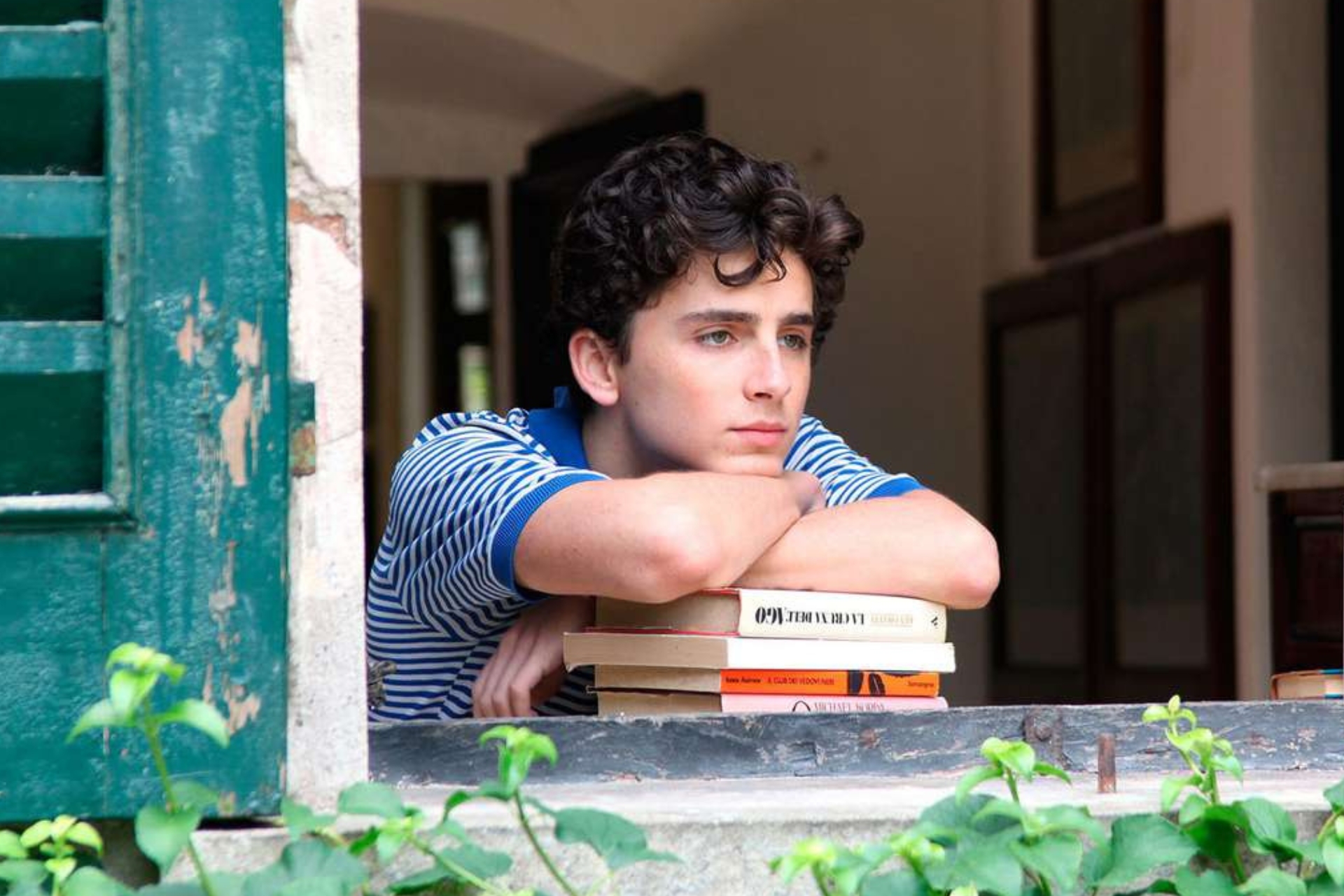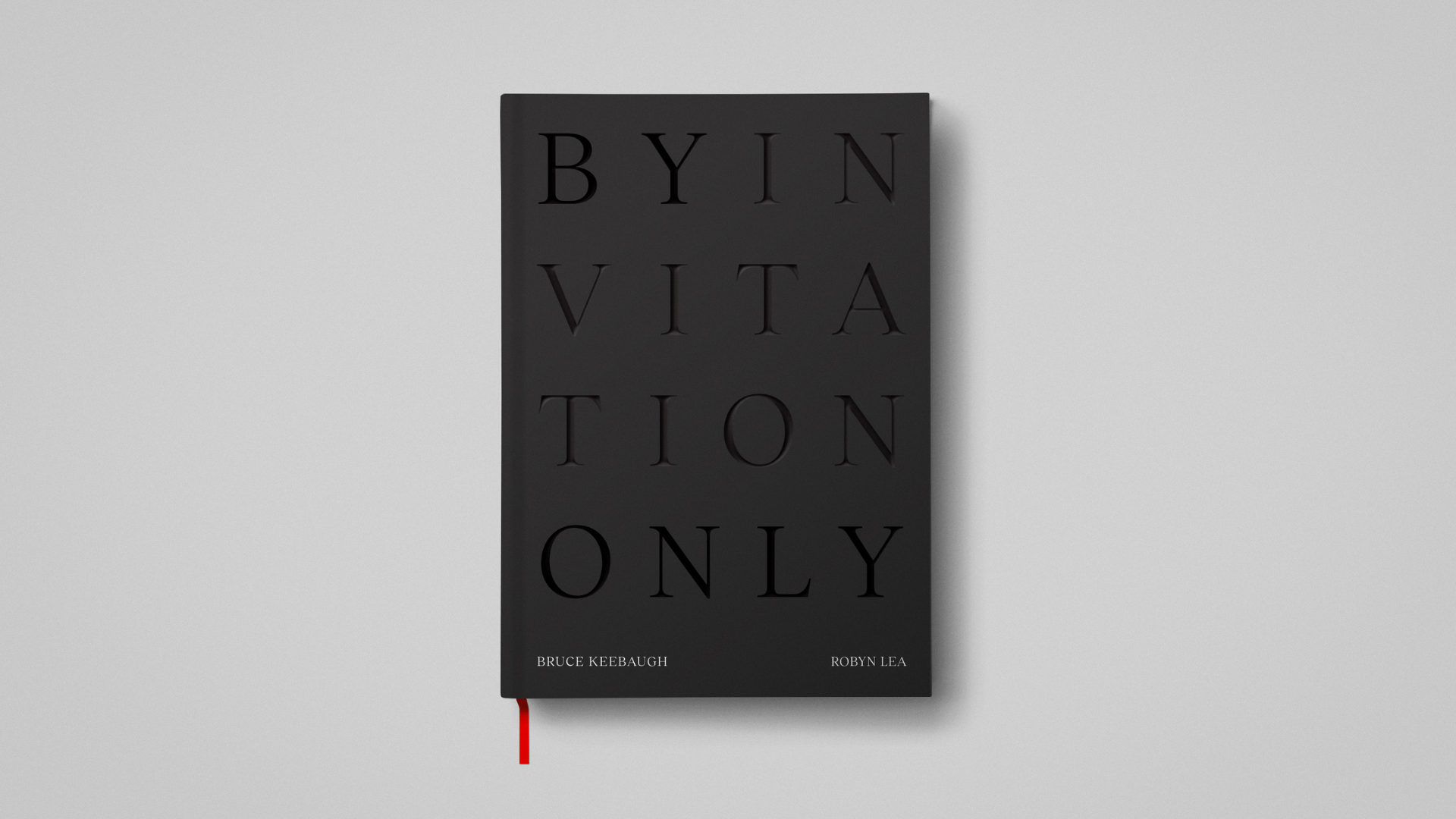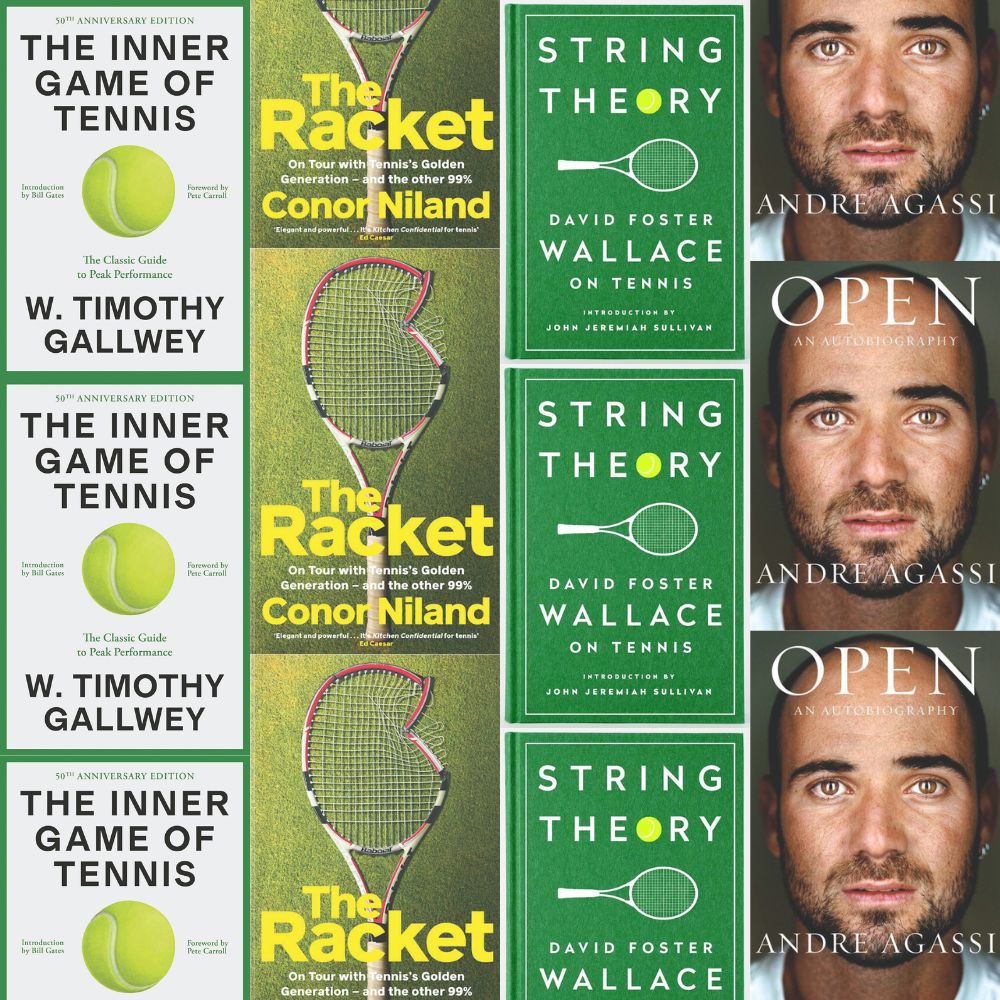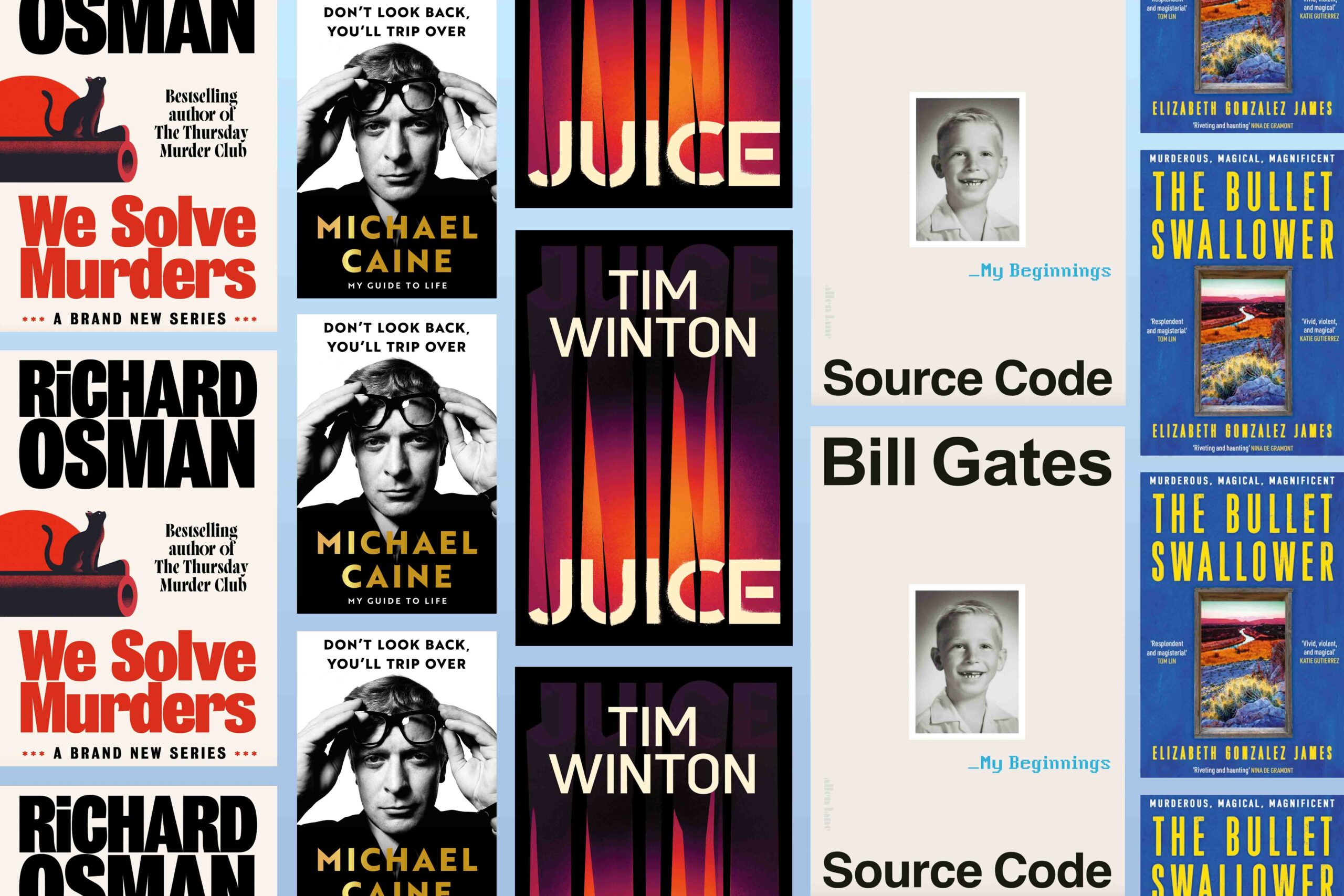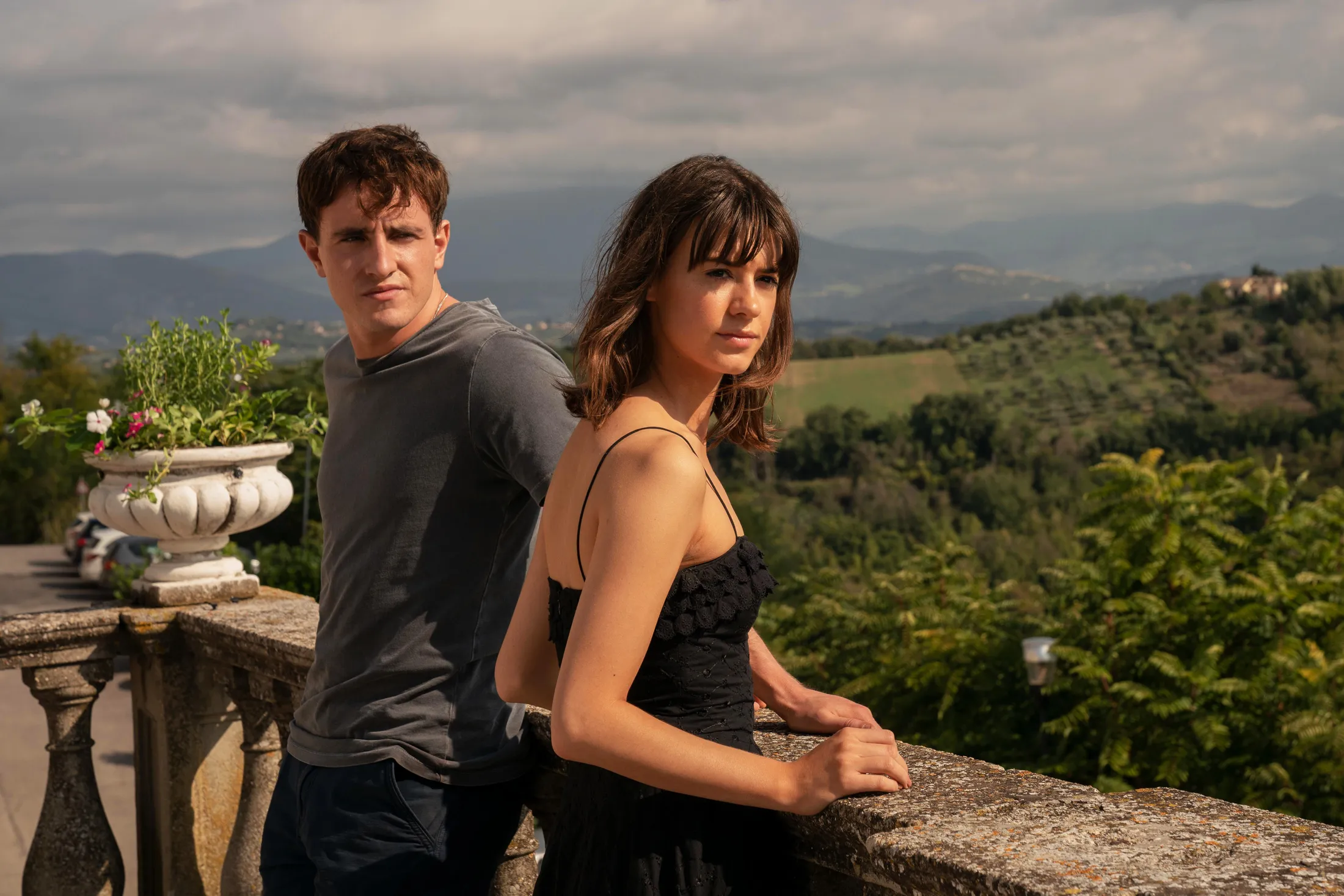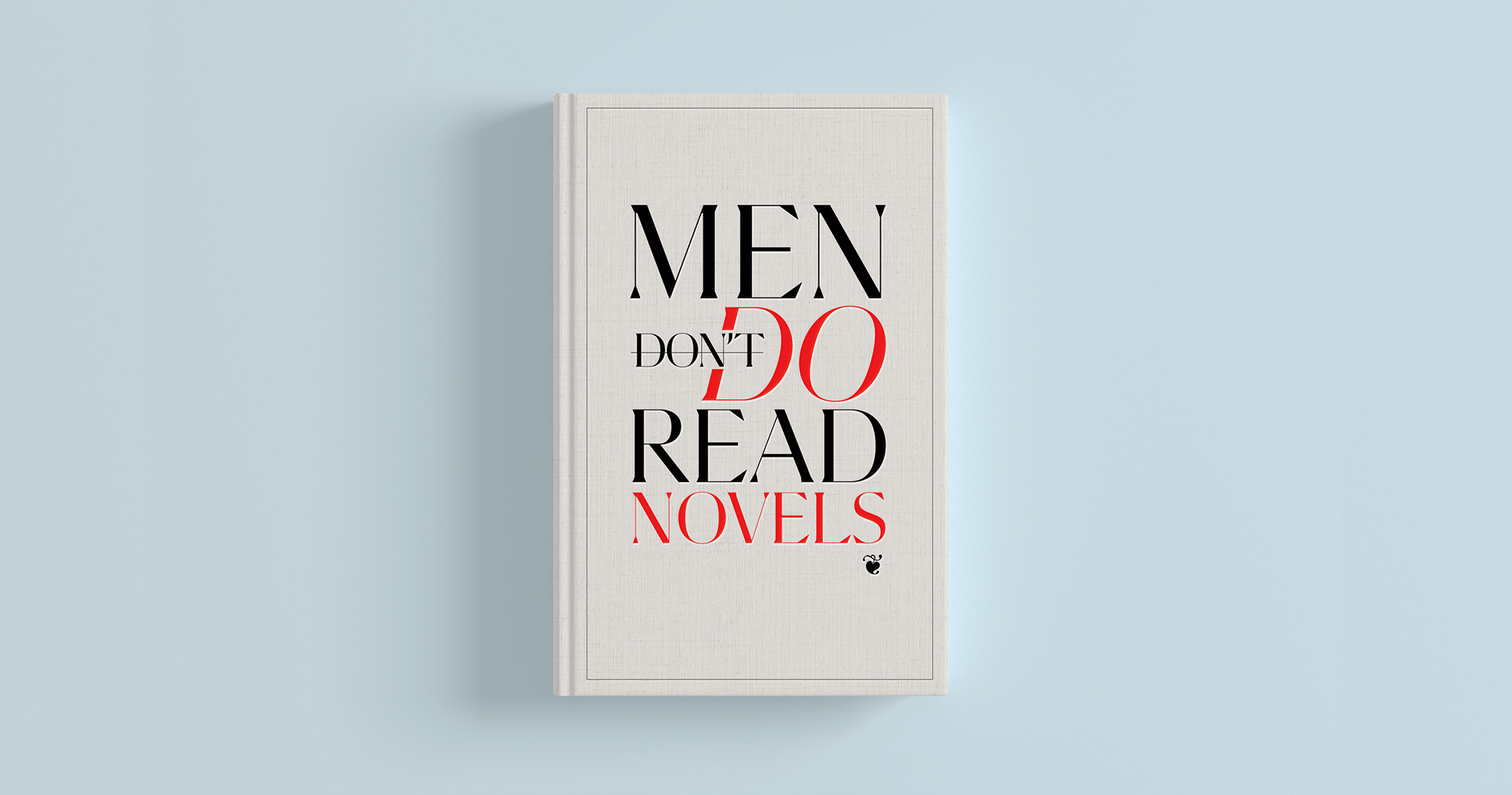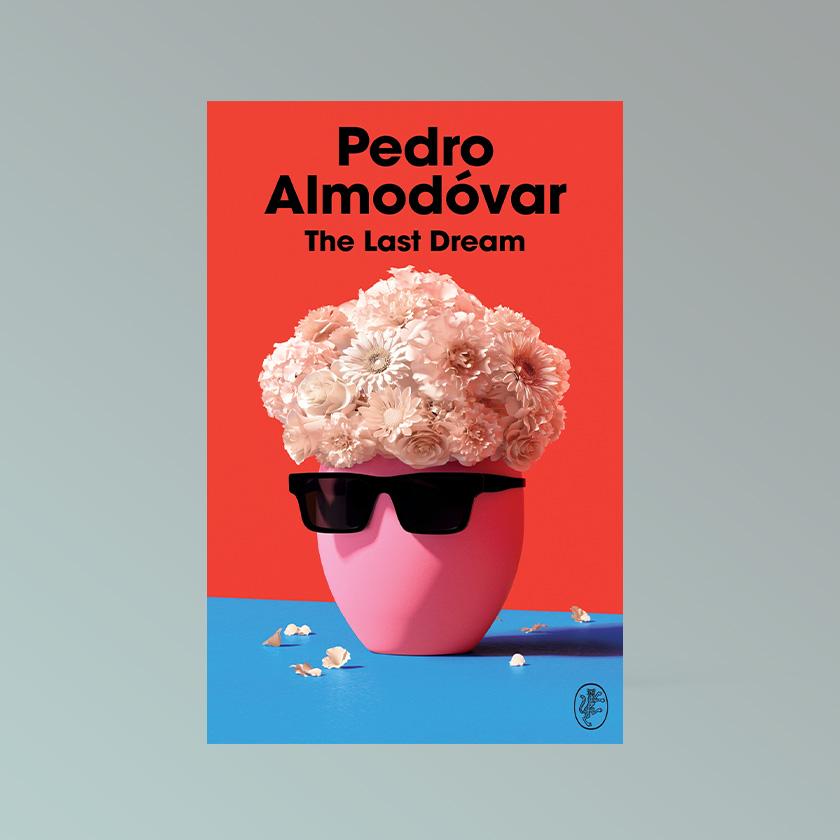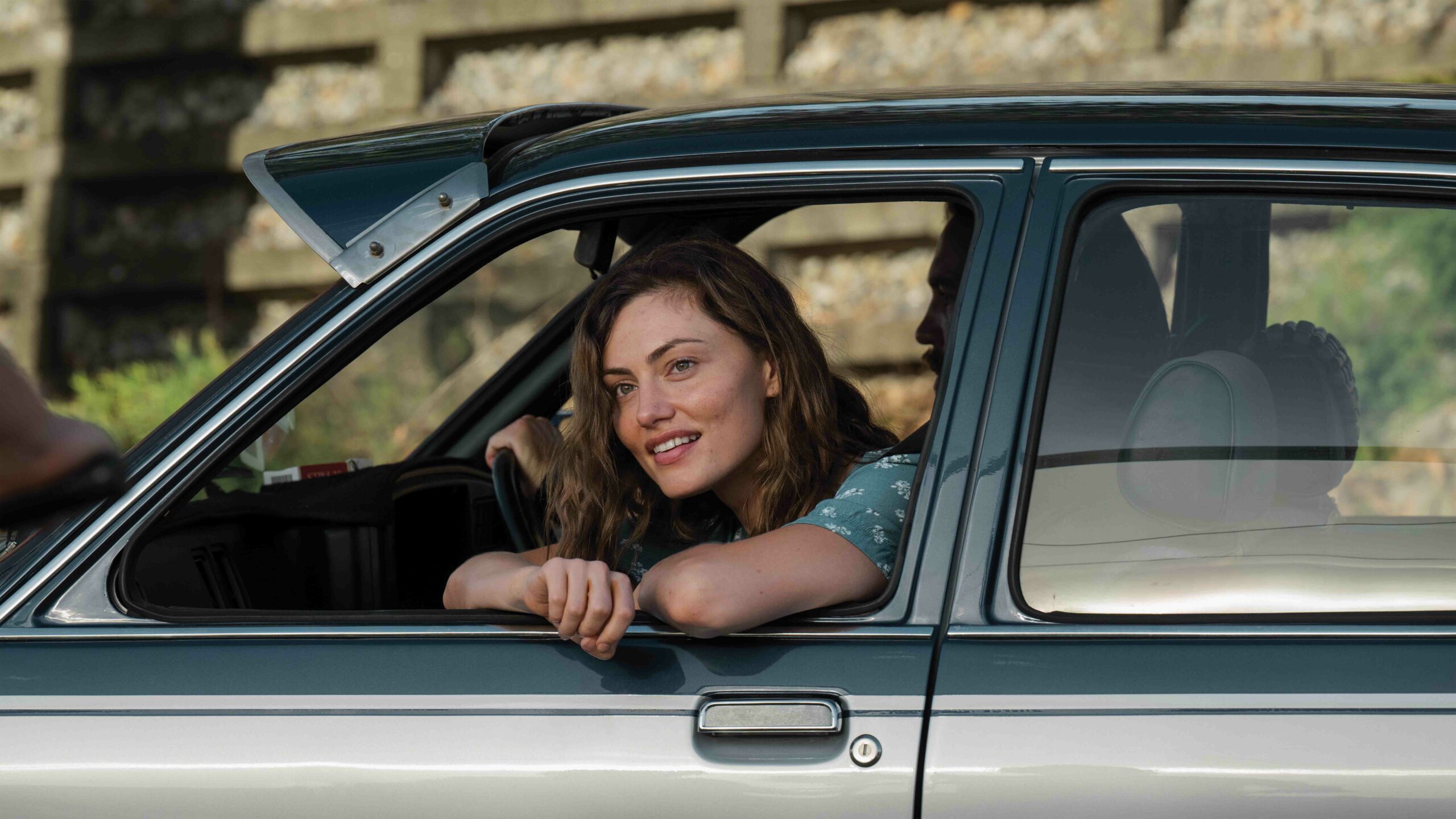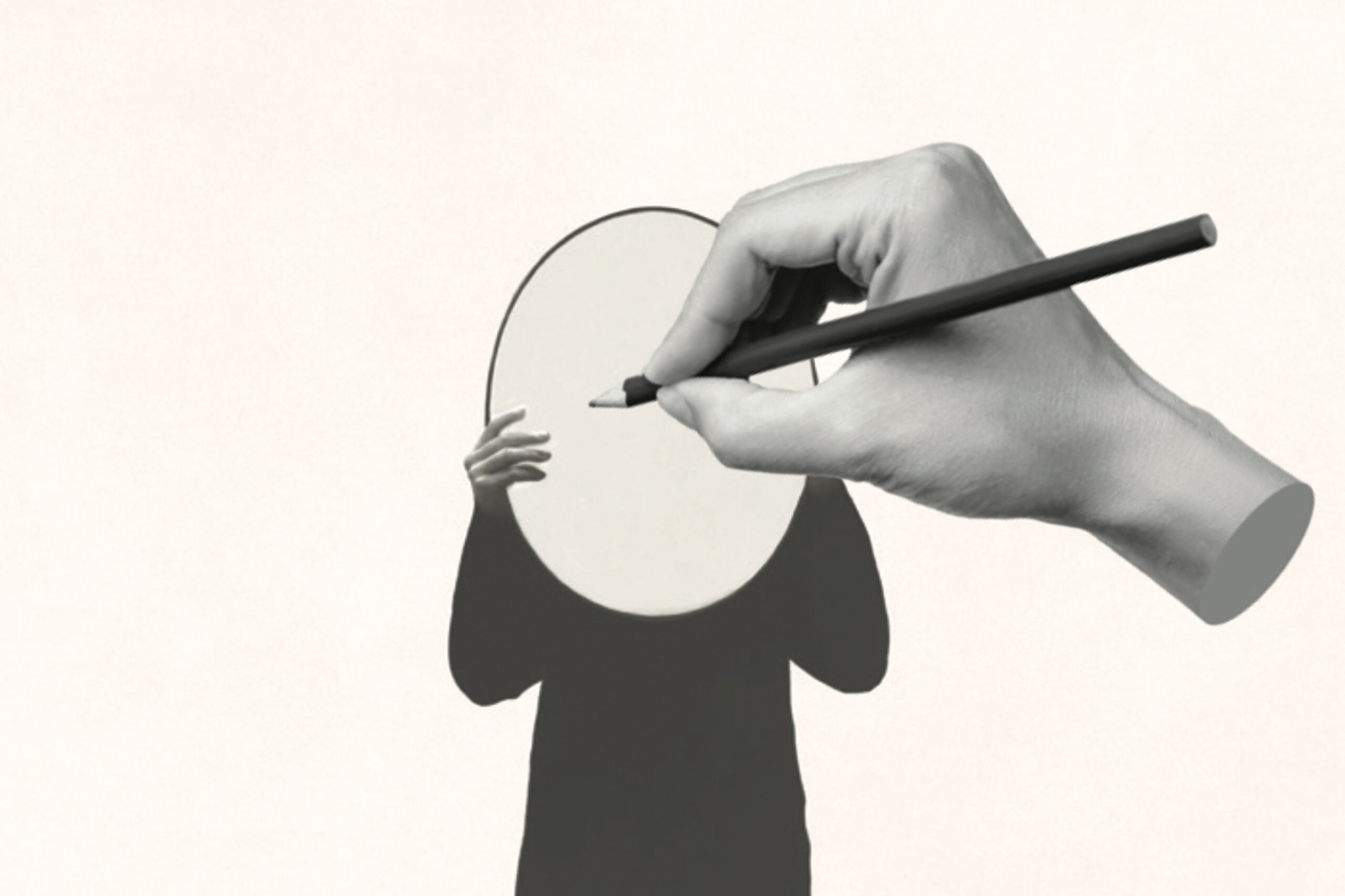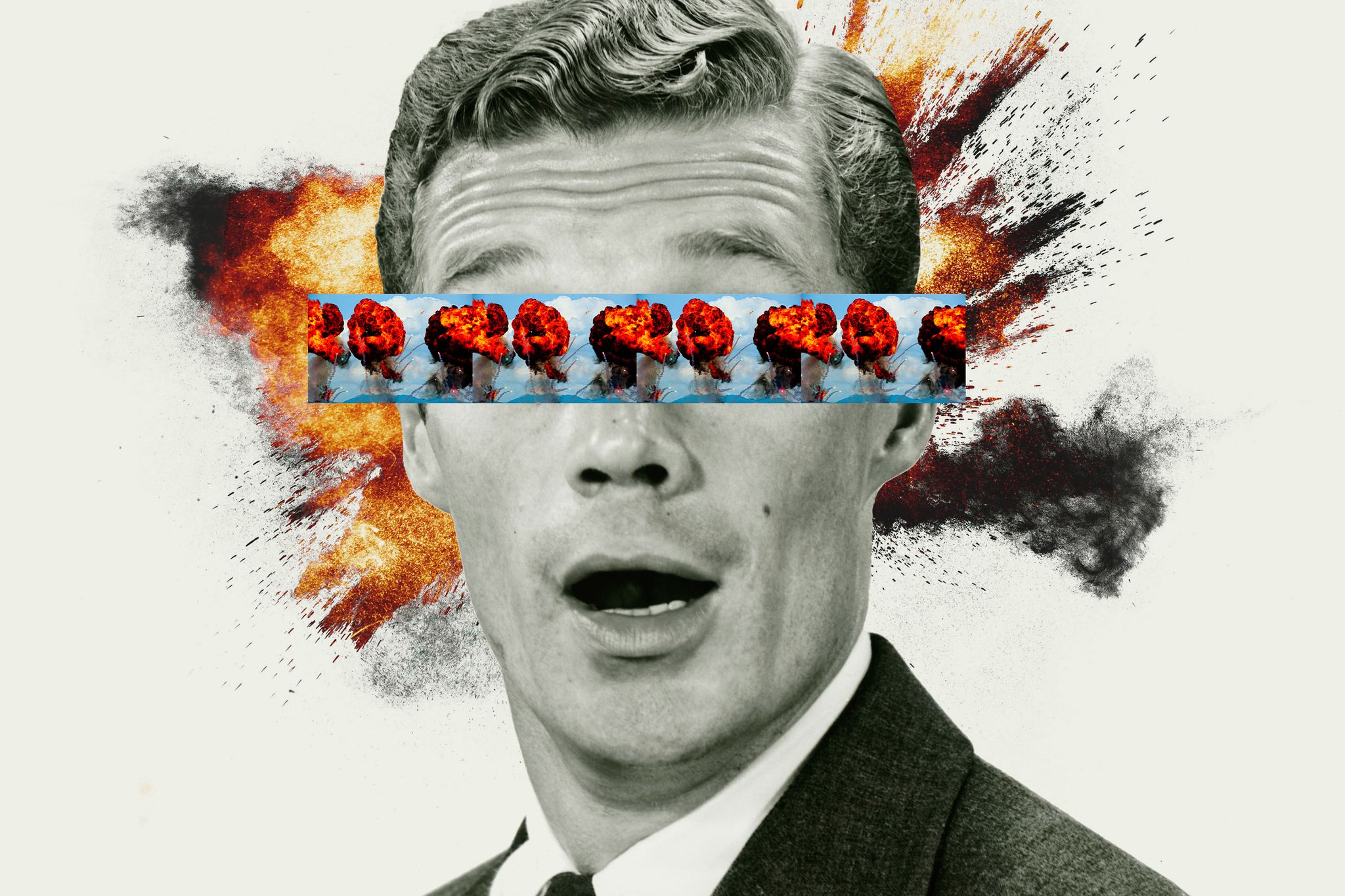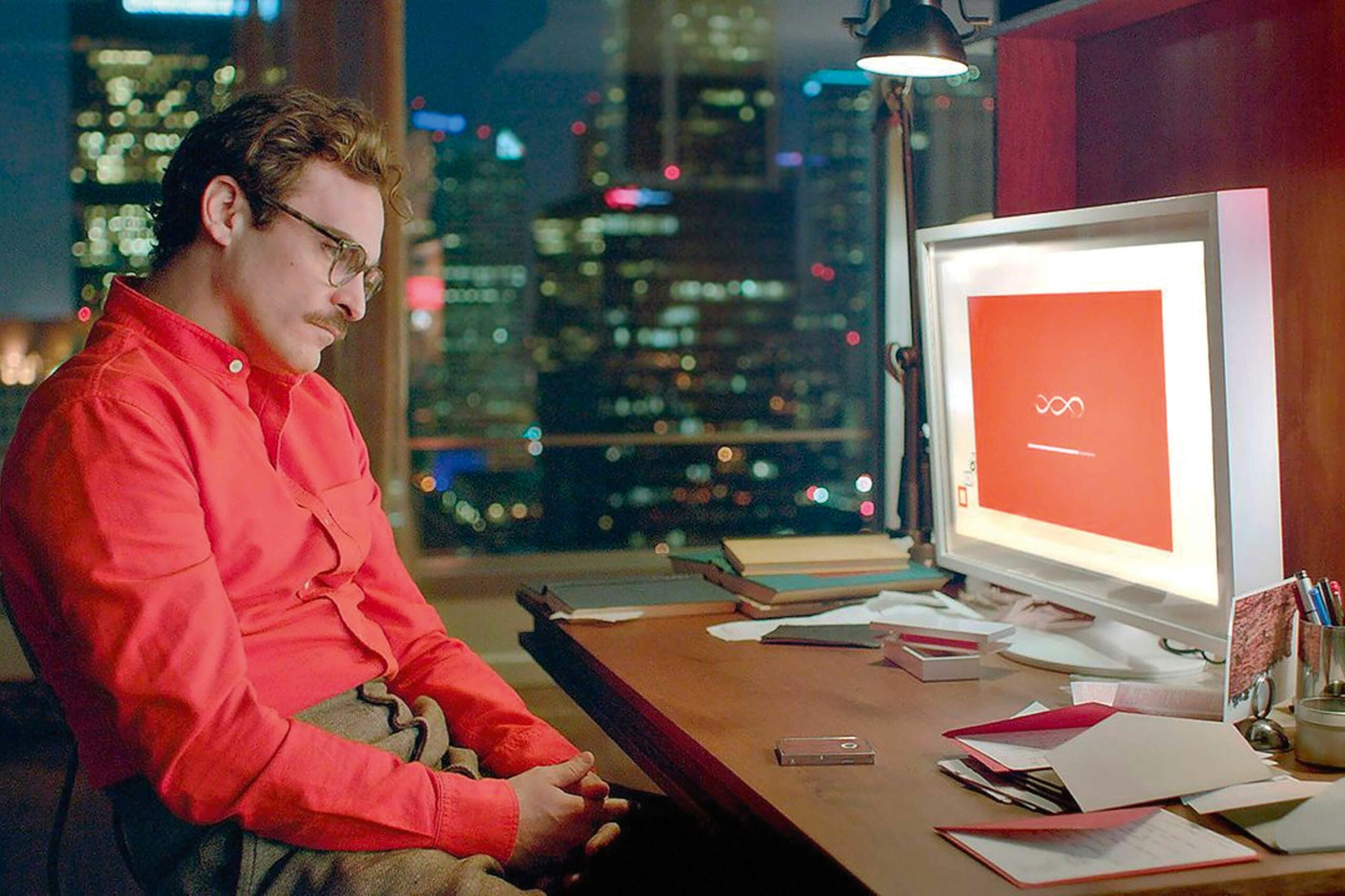Ashley Walters on ‘Adolescence’ and how he would have dealt with the “Manosphere”
We spoke to the actor about the reaction to his critically acclaimed Netflix show and his upcoming memoir, 'Always Winning'
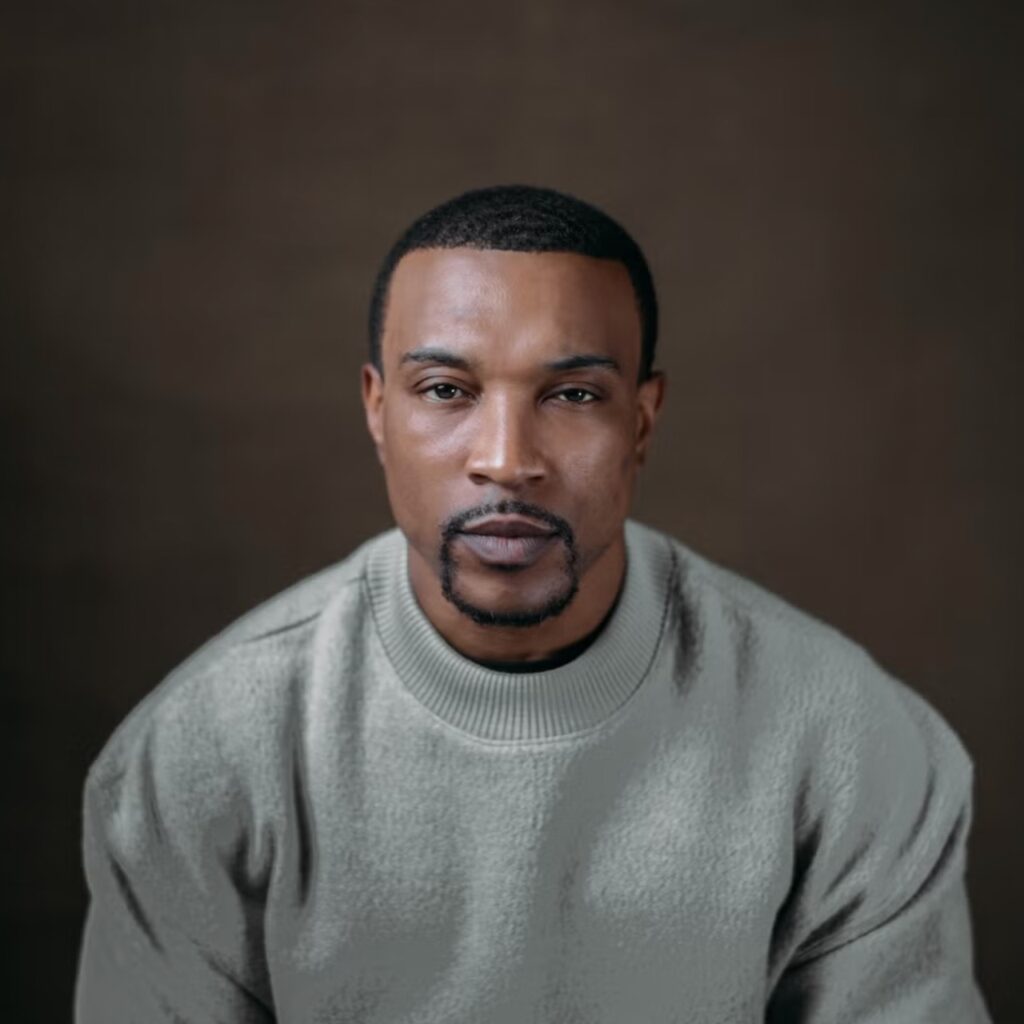
EVERY SO OFTEN, a British TV series will come along that commands the national conversation. Think Baby Reindeer or Mr Bates Vs The Post Office in 2024, Happy Valley the year before. It’s a very rare show that takes over the world.
When Adolescence, an unconventional dramatic thriller co-written by Stephen Graham and Jack Thorne aired earlier this month, it was a matter days before it became the number one series in every Netflix territory. Hundreds of thinkpieces had been written in that time, and it was even referenced by Prime Minister Keir Starmer in the House of Commons for its handling of knife crime and the toxic impact of the online “manosphere”.
Directed by Philip Barantini (Boiling Point, Malpractice), the series unfolds in four parts, each an hour-long continuous shot, kicking off with the shocking arrest of 13-year-old Jamie Miller (played by incredible newcomer Owen Cooper) for the murder of his female classmate, Katie. Graham plays Jamie’s father, Eddie, while an ensemble cast make up the community that is utterly rocked by the events.
Ashley Walters plays DI Luke Bascombe, the officer who arrests and questions Jamie before heading to his school to delve deeper into the tragedy. After wrapping Top Boy in 2023, Walters – a father and grandfather – had been looking for something completely different. With this, a show tackling masculinity, incel subcultures and social media, he found it.
In the aftermath of Adolescence, over a mid-morning Zoom call, Esquire spoke to Walters about the overwhelming response to the show, how it rejuvenated his passion for acting, and his recent return to music.
Esquire: Did you imagine Adolescence would be such an international hit?
Ashley Walters: There’s no way I could have foreseen this sort of reaction to the show. When we were filming it, we talked about how important it is for the moment and we wanted to create conversation – it’s what you hope for with most projects, to be honest. But this has gone beyond what I could have expected.
How would you sum up the filming process?
Intense. As much as I’d always wanted to shoot in this way, and I’d always wanted to work with Philip Barantini since I heard about him, I didn’t really understand how intense the process would be. I kind of went into it blindly, just thinking, ‘Oh yeah, it’ll be fun’. And it became one of the hardest things I’ve ever done in my life, as an actor.
But the unity on set was something I’d never experienced before. There were a few of us that had never done this style of one-take filming. Up until we started filming in week three, I was very unsure about whether I would be able to do it. It took a lot of leaning on each other – me, Faye [Marsay, DS Misha Frank] and Jo [Hartley, Mrs Fenumore] would have dinners after work, where we’d all be sitting there going: ‘Sh*t.’ I spent a lot of evenings in my apartment looking at the script, or standing in the mirror reciting my lines, just thinking, ‘Please, God help me. I don’t want to be the one to drop the ball and spoil it.’ But we really carried each other through, telling each other ‘you’re gonna be fine’.
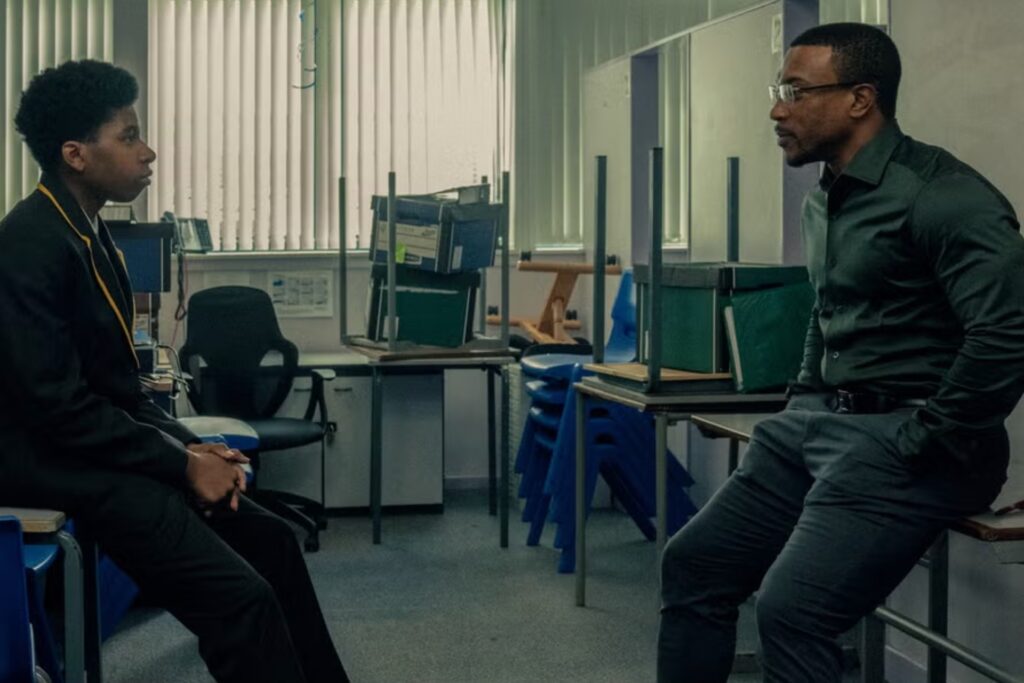
Have you had any surprising responses from any of your peers?
Stephen had a conversation with Daniel Day Lewis recently, who apparently said the performances were great, and ‘Ashley was great’. There’s not much higher than him when it comes to acting capability, so a response like that is amazing. I’ve had a really great career up until now but this has unlocked another level for me that I probably didn’t know existed. It feels like a new start. I was getting slightly disillusioned when it came to acting. It’s why I’ve been focusing more on directing, I wanted to feel challenged again, I wanted to feel how I did at the beginning. But Adolescence has rejuvenated and reignited the fire in me as an actor, and I’m really looking forward to seeing what happens next.
What was it like working with Owen Cooper? It’s incredible that his first professional credit is a massive project like this.
He’s a magician. I didn’t know how he was doing it. Watching him, I was in awe of how confident he was – it’s his first professional job, but it’s also with one-take episodes and with actors that are very experienced and he’s just holding his own with everyone. With Steve, with Erin [Doherty], with myself. I’ve got a lot of respect for him, and I believe that he’s going to go on to do great things. Owen made me remember what I should be trying to achieve – that childlike innocence that, even as an adult, you should be trying to acquire in every job. That’s what acting is all about: forgetting about your trauma, or how society may have tainted you, or the restrictions and just believing in what you’re doing.
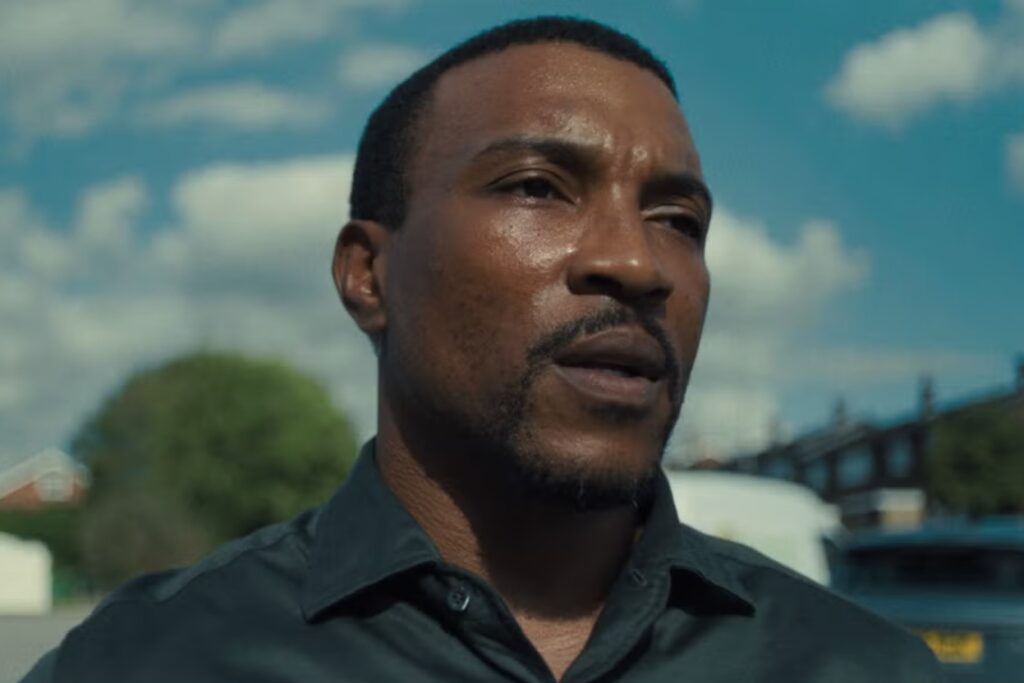
How do you think you would have fared as a teenager in the age of social media and “manosphere” content?
Probably not too well, if I’m honest. When I was younger, I was a lot more . . . opinionated, let me say that. But that was based on the bubble that I was in; the things I saw immediately around me. Having access to what the rest of the world was doing back then, with the sort of opinions that I had… I would have been cancelled before I even started! So I’m pretty glad I was able to learn a lot about myself before I was given those tools.
Aside from DI Luke Bascombe, you’ve played a lot of police officers in your time in Bulletproof, Cuffs, Silent Witness . . . what keeps bringing you back to these roles?
As a young Black man, I was always being typecast as the criminal at the start of my career. There weren’t a lot of roles that deferred from being on the wrong side of the law, and I made a conscious decision to not do that; I didn’t want to get pigeonholed. Top Boy’s an exception, that was a role I couldn’t turn down. But just before I started that, I decided to try not to do any more of those roles, I knew I wanted to embody different parts than what was expected. So, the whole police thing came from wanting to do something on the ‘right’ side of the law.
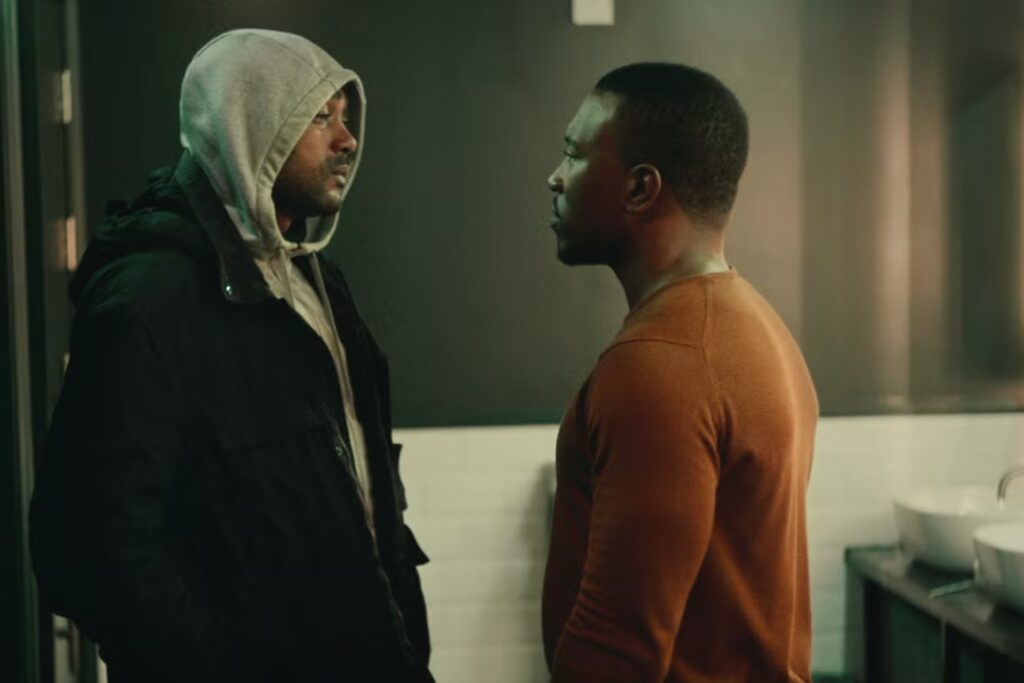
Let’s talk music. You released your latest EP, Test the Walters 2, earlier this month. What gave you the motivation to drop a music project now?
I’ve been working on an album for the last two years. There was a part of me that was fearful of releasing music because I didn’t know what would happen with it. I didn’t know whether it would get the respect I felt it deserved. But I’ve had some conversations with other artists, and they’re like, ‘Bro, just release music, man. It’s fun, don’t take it too seriously.’ So, I did.
One of great collaborations on the album is the opening track, ‘Take A Pic’ with Giggs. How did that come about, and what was it like working with a friend?
I went to dinner with Giggs and his son, after I played them the track in the car, and he played me some of his new album. Then when we were sitting down to eat, Giggs was basically like, ‘I’m going on that track.’ And that was it, he didn’t need to say it twice. But Giggs is more than a friend to me, he’s one of the people in my life who will always remind me of who I am. If I ever doubt myself, he’ll be the one who will call me randomly and go: ‘You know you’re Asher D, right? You know you’re the guy?’ I think, sometimes, I practice so much humility about what I’ve done. To a certain extent, that’s required. But Giggs is always reminding me to celebrate.
Your memoir, Always Winning, is coming out soon. What can readers expect?
I try to wear my heart on my sleeve when I’m talking; when you hear me on a podcast or read about me in an interview, I always want people to know everything, rather than just the good bits. The book is an extension of that. I’ve had so many great experiences in this game, and so many negative experiences in life that have shaped me and helped me to develop a set of principles that I try to practice every day. I’m no expert on anything when it comes to life and stuff, but this is what happened to me. This is what I learned from it, and this is how I know not to make those mistakes again.
Before we go, I have to mention Top Boy, a true British TV classic. What’s it like to have been such an important part of an iconic show?
It was such a big part of my life. It advanced me as an actor, as a brand, all of that stuff. Even though I made the decision to not do it anymore, it’s such a shame that it’s not happening. But I feel really proud to see Micheal [Ward] flourish in the way he’s flourishing; to see Kane’s [Robinson] career grow; to see Jasmine [Jobson] go on to do all the great things that she’s doing. You can even go back as far as Letitia Wright, from the first season. The show became a real foundational hub for Black actors in the UK to gain traction worldwide. Long may it continue.
This story originally appeared on Esquire UK.
Related:









